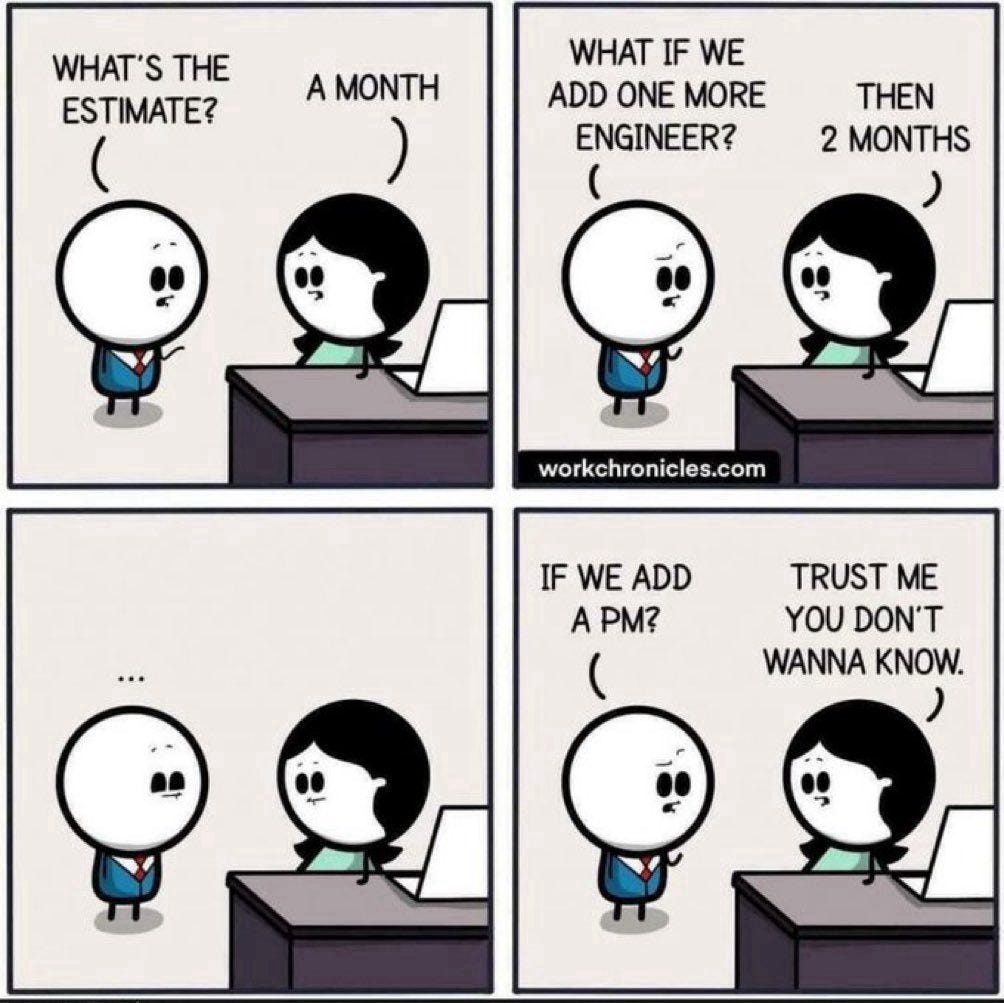We’re hiring 42 engineers this year
Remember that time in high school when you were stuck with your math homework?
Imagine you’re tasked with deriving an equation for the very first time.
You’re *really* focused on getting it done. You spend hours and hours thinking about how to solve the problem.
Yet, you eventually give up.
Who is your go-to person you ask for help?
Would you prefer to ask 100 first graders to help you or 1 university math student?
I’d go with the university student every single time.
Yet, tech journalists, VCs, job applicants, and even tech recruiters ask me regularly: “How many engineers do you plan on hiring this year?”
This question is fundamentally flawed.
Software engineering is remarkably similar to math in the sense that a really great mathematician can solve a thousand times more difficult math problem than an army of first graders.
9 women won’t give birth to a child in a month.
100 Cessna pilots won’t fly a fighter jet.
So let’s stop thinking of software engineers as a commodity. The best software builders are at least 100x more productive than the mediocre ones.
You might not need a team of 50 engineers after all, you might just need a single really awesome engineer.
So how many engineers are we looking to hire at Better Stack?
Every single great one we can.



Totally agree with the rationale, just that sometimes some companies would hire that one expert and leave him/her alone with the unrealistic expectations of pulling over the effort of an entire department. And that person might even do it, but at what cost?
I believe that setting realistic expectations while growing organically and looking for long-term fruitful collaborations is key.
The graphic reminds me of mythical man month.
This article also makes me feel asking the question about how many engineers a hiring manager is going to hire is somewhat of a trick question now.
I will have to play with it in the future ;)